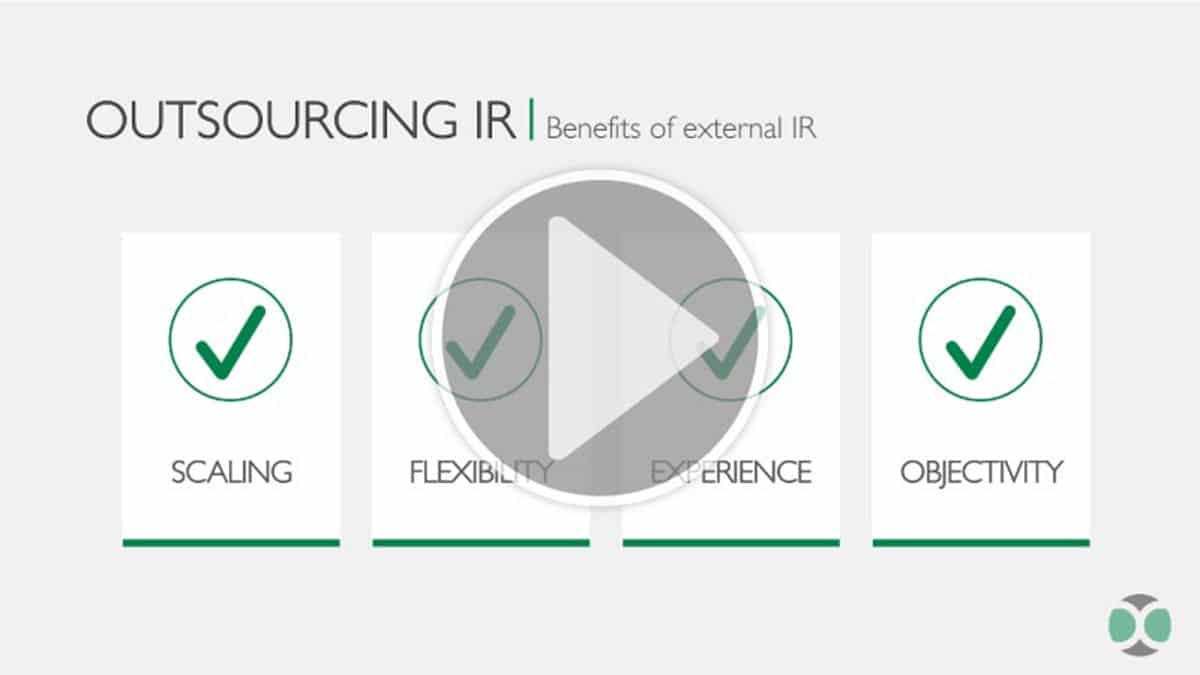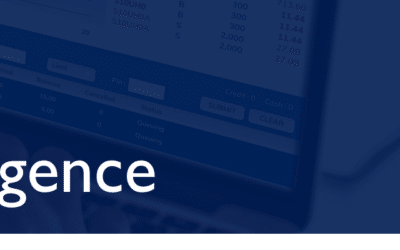While a desire for improved cost and operational efficiencies is often the motivation behind outsourcing certain corporate functions, the associated (and sometimes unexpected) benefits that come with it might make this move a ‘no-brainer’ for small to mid-cap companies.
Global competition for investment dollars is at a premium and the demands of investors and analysts is equally high, driving the need for ASX-listed companies to take a thorough and thoughtful approach to their investor relations function.
While having a fully-fledged in-house investor relations capability is broadly considered to be the optimal arrangement, there has been a recent trend towards outsourcing at least some of this work.
 Research by IR Magazine [1] has shown that, globally, investment in external investor relations services hit a three-year high in 2015. Not surprisingly, it was small to mid-cap companies allocating the highest proportion of their budgets (around a third) to external support.
Research by IR Magazine [1] has shown that, globally, investment in external investor relations services hit a three-year high in 2015. Not surprisingly, it was small to mid-cap companies allocating the highest proportion of their budgets (around a third) to external support.
In this ‘Green Room’ article we explore some of the benefits of engaging external investor relations support, and also outline the potential pitfalls around this critical function. Keeping costs down is obviously a key driver of any business, so let’s start with the economics.
Scalability = Smart economics
As the function of investor relations has become more sophisticated, and practitioners more specialised, the cost of hiring a senior investor relations officer (IRO) has increased to levels that might make it a prohibitive option for some companies.
Furthermore, while we advocate consistency of market engagement throughout the financial year, in some cases the investor relations role can be subject to a degree of seasonality that make it hard to justify employing a highly-paid executive over the full 12-month cycle.
An alternative could be to hire a more junior (and cheaper) IRO who will possibly lack the experience, key relationships and general market savviness to make them effective. Another option could be to add the role to the already full plate of the CFO or Company Secretary which can work in some cases but, as a company grows, the ability to provide true investor engagement can become squeezed.
This is where the scalability that comes with engaging an external service provider can provide substantial cost benefits. Having the additional bench strength to draw on, when needed, has obvious advantages, especially when additional ‘arms and legs’ are required for specific activities such as half and full-year financial results, AGMs, site visits and shareholder events.
Objectivity
However, this is only part of the benefit. An outsourced individual or team of investor relations specialists typically bring with them a useful level of objectivity to the challenges facing a business, as well as a suite of associated skills and services such as strategic counsel, messaging, investor outreach, roadshow support and more. This objectivity can provide a much needed reality check, particularly in situations where a complex issue needs to be communicated or explained.
Experience
Engaging with a team of investor relations professionals that have worked across a number of sectors and, ideally, in different markets, provides a breadth of experience, perspectives and insights; not to mention a cool head, when a company hits an unexpected ‘bump in the road’, such as an activist shareholder, profit downgrade, unsolicited takeover offer or operational crisis. The ability to tap into senior consultants with decades of experience can make a real difference.
Flexibility
Finally, an outsourced investor relations function should give you a degree of flexibility, especially in the formative stages of a new business, to ensure you are consistently striking the right balance between capacity and internal capability, and what you need from your external provider.
An agency that is truly dedicated to servicing its clients to the highest level will be open to regular reviews, flexible contract options and an adaptable team to meet your needs. If those fundamentals are not being delivered, then it’s time to move on.
What to watch out for…
While there are potentially myriad reasons as to why an outsourced investor relations model may have failed, more often than not it is due to a break-down in one of the following four key areas.
The most important factor driving the success of engaging an outsourced service is making sure it aligns with the strategic needs of your company. Business operators should regularly ask of their service providers: “How does this support my business objectives?”.
The starting point of any outsourced investor relations provider should be to ensure that the program they are advocating supports, and is aligned with, the strategic ambitions of your company and those of the Board. A well-considered and executed investor relations plan will help the company shine and keep the Board from meddling.
Once the strategy is set and the Company and external provider are aligned, make sure all parties are crystal clear on what your needs and expectations are, including clarity of roles and responsibilities. Delivering value is the role of the advisor and any one worth the fees you are paying them will work feverishly to understand your drivers and make sure your expectations are constantly being met, or exceeded.
Thirdly, watch-out for both team chemistry and team continuity. Getting the right team on the job to serve you is your prerogative, so if the team doesn’t fit, say so. Also, watch out for top-heavy agencies that win your business and then pass you down the line. You should demand senior team leaders at all times, who can then draw on an appropriate team to fit your needs.
Finally, like most successful relationships, effective communication is the key. Regular contact will help to keep expectations, delivery and outcomes aligned.
When you’re in the market for an outsourced investor relations solution, look for an advisory firm that has long-standing relationships with its clients; chances are they know what they are doing and they are focused on consistently delivering value.
John Gardner is a Co-Founder and Managing Director of Citadel-MAGNUS @JohnGardner72
[1] www.irmagazine.com


